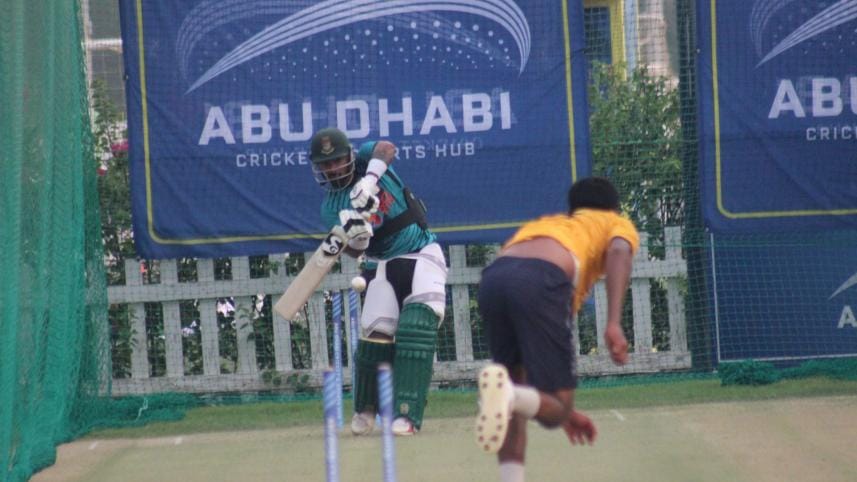‘You can’t just rely on sixes in every match’

Bangladesh captain Litton Das didn't leave the field even after completing his own batting session. Still padded up, he stood in the umpire's spot, carefully observing his teammates at the crease. It was the lower order's turn to practice. Jaker Ali Anik and Nurul Hasan Sohan sought maximum runs, combining innovative strokes with sheer muscle power.
During Bangladesh's two practice sessions in Abu Dhabi ahead of their Asia Cup 2025 opener against Hong Kong today, the focus was noticeably on big-hitting. That's hardly unusual ahead of a T20 tournament.
Not long ago, Bangladesh lagged behind even Zimbabwe in terms of six-hitting rate in T20Is. After the recent series against the Netherlands, Litton and his team have improved slightly—but still remain in 10th place.
Across 197 T20 internationals, Bangladesh batters have managed 840 sixes in total—an average of 4.26 per match. Until recently, that figure was even lower. Compare that to Afghanistan, whose batters clear the boundary at a rate of 6.02 sixes per game, and the gap becomes more evident.
To improve in this area, Bangladesh brought in power-hitting coach Julian Wood ahead of the Asia Cup. In his sessions, the batters have been learning how to harness their physical strength and execute big shots effectively. The Asia Cup will test how much they have absorbed from these lessons.
Signs of improvement are visible in recent outings, though Litton believes it's not just about hitting sixes, but about playing smart cricket.
When asked about six-hitting in the pre-practice press conference, the skipper struck a careful balance:
"In T20s, when you hit those big sixes, it's a plus point. In any difficult situation, you can get yourself out of trouble."
"But at the same time, you have to realize that you can't just rely on sixes in every match. You must read the boundaries, assess the opposition. I think instead of only chasing sixes, we need to play smart cricket."
Six-hitting also comes in phases. With the field restrictions in the Powerplay, top-order batters have fewer chances to rotate strike and are often forced to go for big shots early. Once the middle overs begin and the field spreads out, rotating the strike becomes just as crucial. Bangladesh's middle order has shown signs of stiffness during that phase. Litton, however, insisted that strong top-order performances have meant the middle order hasn't had much to do:
"Our top order has performed really well. The middle order hasn't had to carry too much responsibility. I believe when the responsibility does come to them, they'll step up. They've done it before, and they'll do it again."



 For all latest news, follow The Daily Star's Google News channel.
For all latest news, follow The Daily Star's Google News channel.
Comments